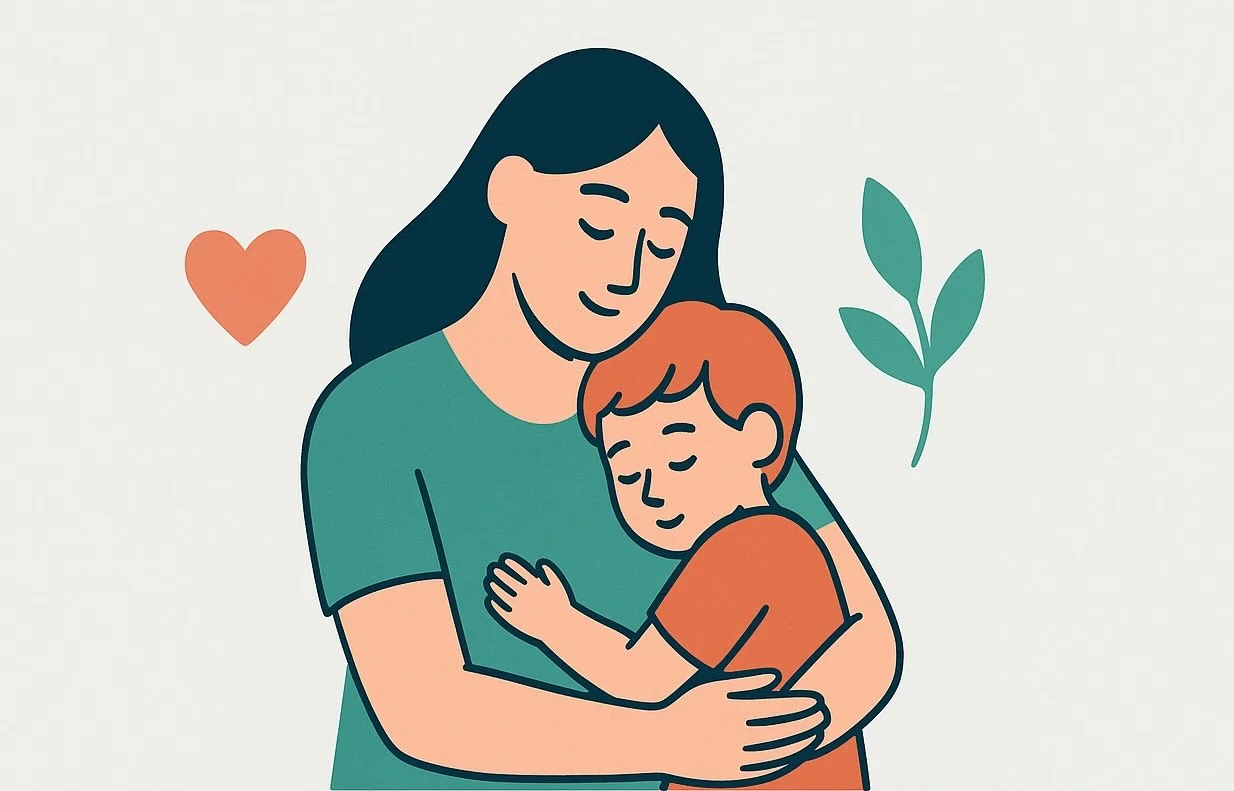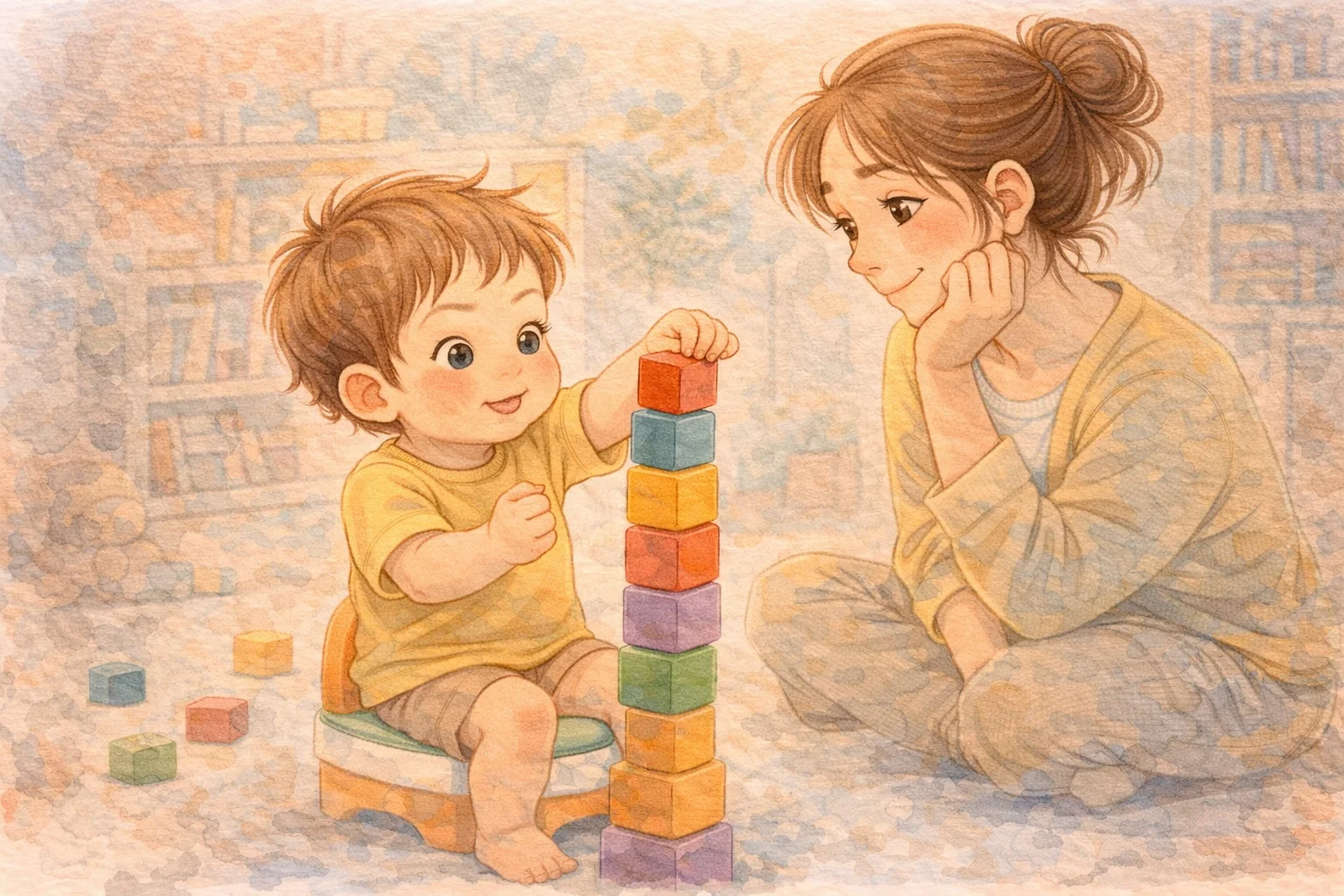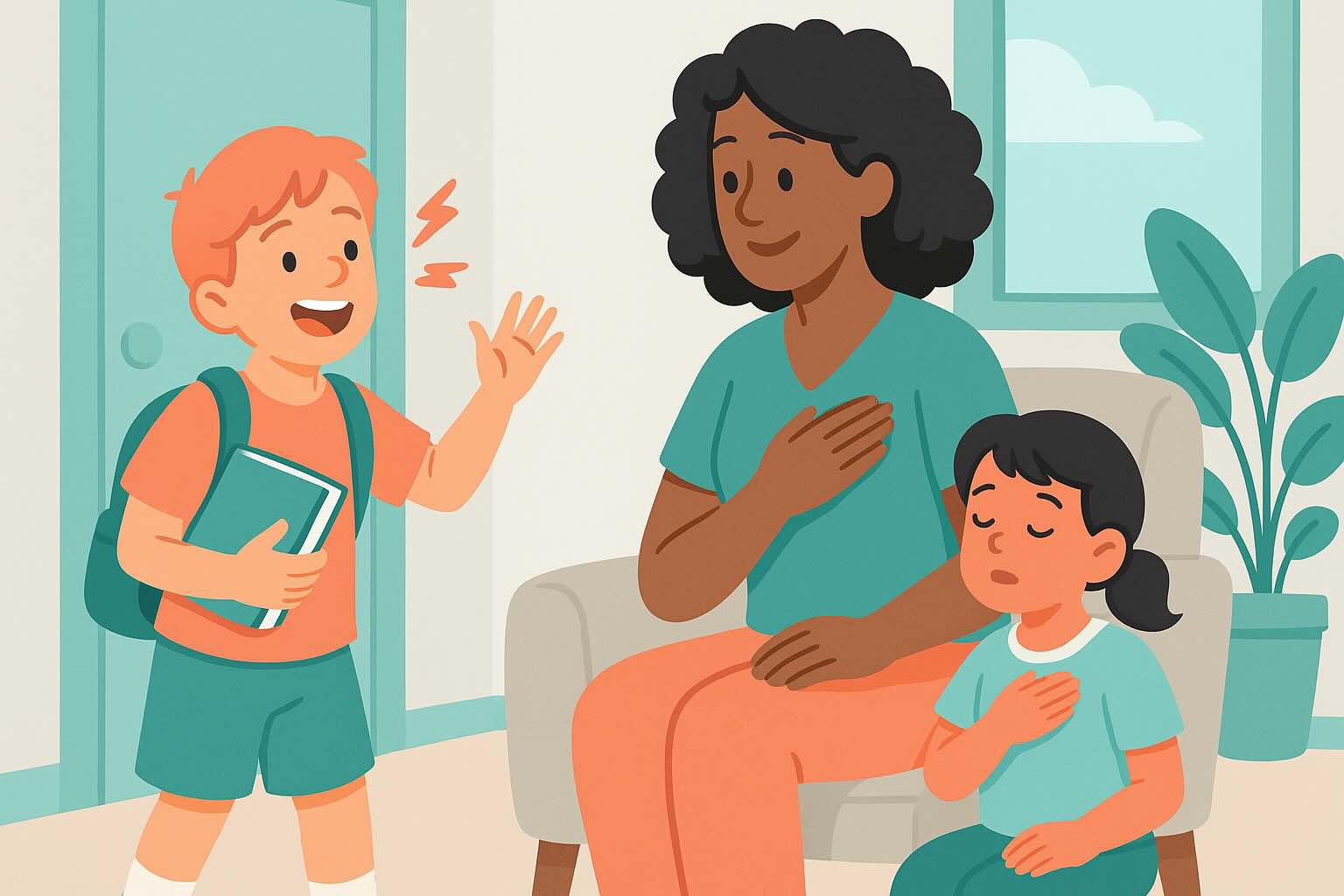4 Year Old Milestones: Essential Development Guide for Parents
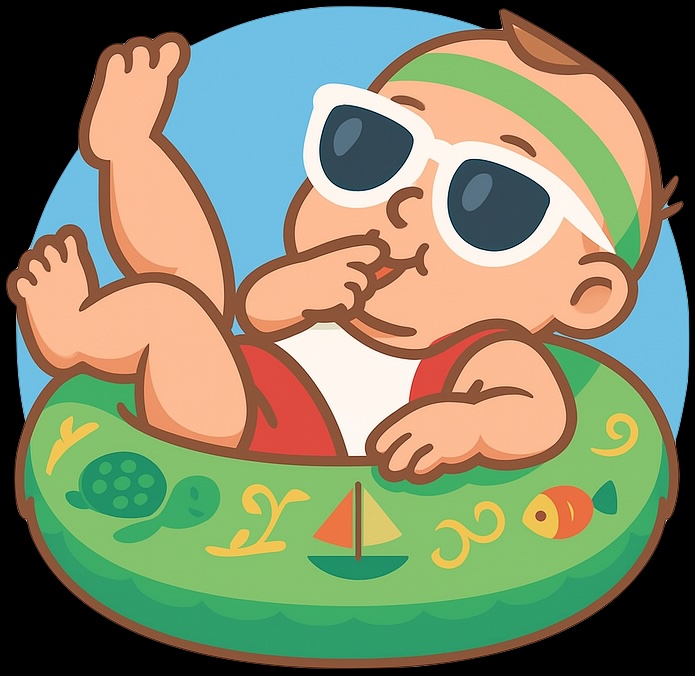
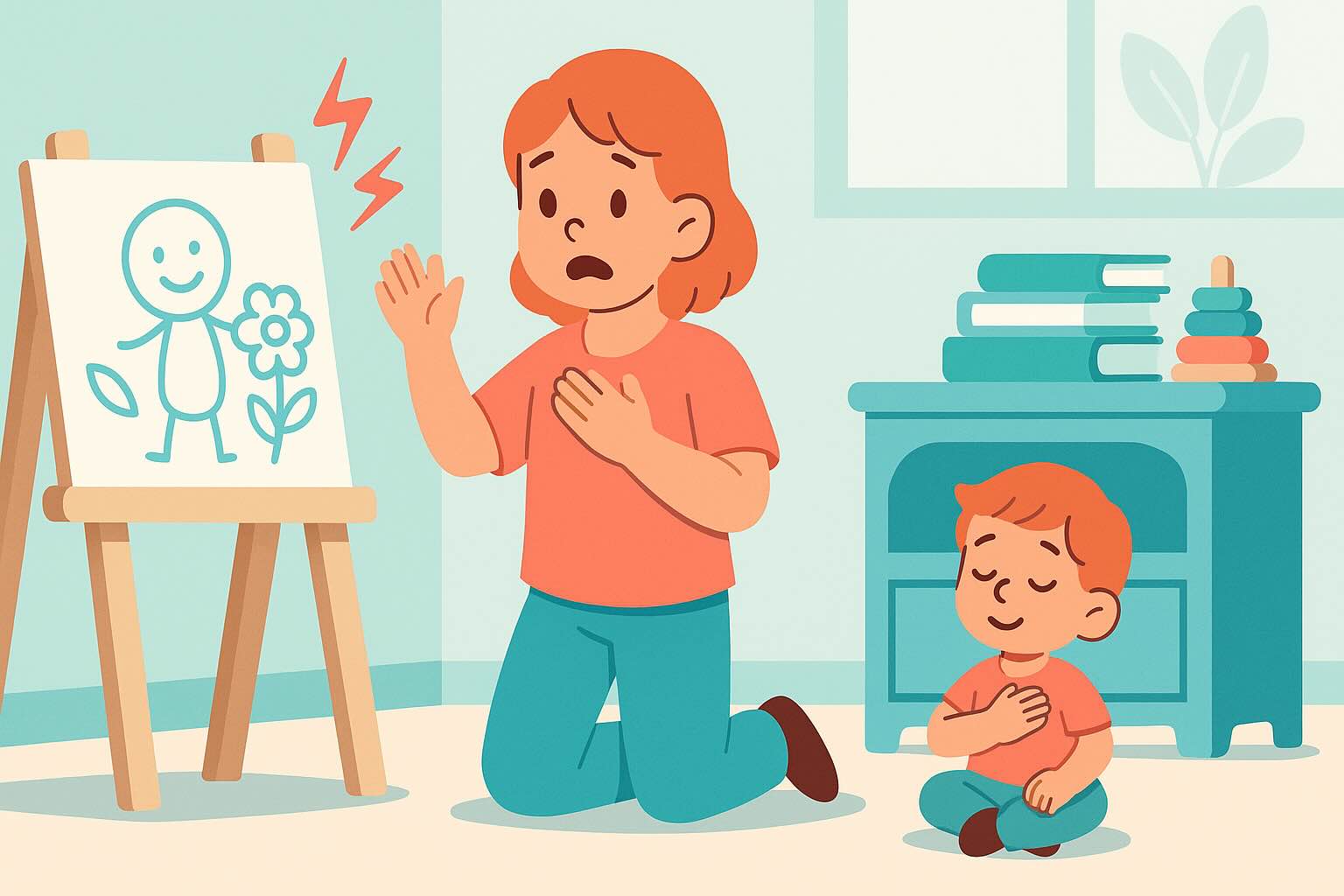
Your 4-year-old is blossoming into a curious, creative, and increasingly independent little person. This age marks a significant transition as children prepare for more structured learning environments and develop the foundational skills they'll need for kindergarten. Understanding what's typical at this age helps you support your child's growth and recognize when additional support might be beneficial.
The Four-Year-Old Transformation
At four, your child is no longer a toddler but a genuine preschooler. Their world is expanding beyond the family unit, and they're developing the social, emotional, and academic skills that will serve them throughout their school years. The CDC's updated guidelines indicate that 75% or more of children can achieve these milestones by age 4, providing clear benchmarks for typical development.
This year brings remarkable changes in how your child thinks, communicates, and interacts with the world. Their questions become more complex, their play more sophisticated, and their desire for independence more pronounced—while still needing the security of your guidance and support.
Physical Development Milestones
Gross Motor Skills
Four-year-olds show impressive improvements in coordination and body control. Most children this age can:
Movement and Coordination:
- Hop on one foot and stand on one foot for 4-5 seconds
- Catch a bounced ball most of the time
- Move backward with control
- Pedal a tricycle skillfully and steer around obstacles
- Throw a ball overhand with improving accuracy
- Walk up and down stairs with alternating feet without holding the rail
- Jump forward with both feet together
- Do somersaults with assistance
- Climb playground equipment confidently
- Skip with alternating feet (emerging skill)
These physical abilities allow your 4-year-old to participate in more complex games and activities. You might notice they're ready for beginner sports programs or dance classes that require following multi-step instructions.
Fine Motor Skills
The refinement of small muscle control opens up new possibilities for learning and creativity:
Hand Control and Precision:
- Hold a crayon or pencil correctly between fingers and thumb
- Draw a person with 2-4 body parts
- Copy simple shapes like circles, squares, and crosses
- Cut along a line with scissors (with supervision)
- Pour liquids without significant spilling
- Unbutton and button some buttons
- Draw recognizable pictures (sun, house, tree)
- String smaller beads
- Complete puzzles with 12 or more pieces
- Use a fork and spoon effectively
- Mash their own food
The proper pencil grip that emerges at this age is crucial for future writing skills. If your child still uses a fist grip occasionally, gentle reminders and practice will help solidify the mature grip.
Explore fine motor activities →
Cognitive Development Milestones
Thinking and Problem-Solving
Your 4-year-old's cognitive abilities are expanding rapidly, allowing for more complex understanding:
Cognitive Skills:
- Count 10 or more objects accurately
- Name at least 4 colors correctly
- Understand the concept of counting and may know some numbers
- Better understand time concepts (morning, night, yesterday, tomorrow)
- Follow 3-part commands
- Recall parts of a story
- Understand "same" and "different"
- Sort objects by multiple characteristics
- Complete more complex puzzles
- Recognize some letters and numbers
- Understand basic cause and effect
- Begin to understand money concepts
Academic Readiness
Four-year-olds begin showing skills that predict later academic success:
- Recognize their written name
- Attempt to write some letters
- Show interest in learning to read
- Understand that text carries meaning
- Recognize rhyming sounds
- Identify beginning sounds in some words
- Match objects that go together
- Understand positional words (behind, next to, in front of)
The curiosity and questioning that characterize this age are building blocks for scientific thinking. When your child asks "why" for the hundredth time today, remember they're developing critical thinking skills.
Language and Communication Development
Expressive Language
Four-year-olds are becoming skilled communicators with rapidly expanding vocabularies:
Speaking Abilities:
- Use sentences with 4 or more words consistently
- Tell stories that stick to a topic
- Use future tense ("I will go to the park")
- Say first and last name
- Sing songs or say poems from memory
- Use pronouns correctly (he, she, they)
- Ask and answer simple questions
- Use vocabulary of 1,000-2,000 words
- Speak clearly enough for strangers to understand
- Use complex sentences with conjunctions (and, but, because)
Receptive Language
Understanding of language is equally impressive:
- Follow 3-step instructions without reminders
- Understand comparisons (bigger, smaller, heavier)
- Comprehend simple jokes and humor
- Understand storytelling sequence
- Respond appropriately to questions
- Understand negatives and opposites
- Follow classroom instructions
- Understand rules of conversation
Communication Patterns
Four-year-olds love to communicate and will:
- Engage in back-and-forth conversations
- Share detailed information about their day
- Make up stories and songs
- Use language to resolve conflicts (emerging)
- Express ideas and feelings clearly
- Ask meaningful questions to learn
- Enjoy wordplay and silly language
Discover communication strategies →
Social and Emotional Development
Emotional Growth
Four-year-olds are developing greater emotional sophistication:
Emotional Skills:
- Express a wide range of emotions appropriately
- Show increasing emotional control
- Comfort others who are upset
- Understand others have different feelings
- Talk about feelings and their causes
- Show pride in accomplishments
- Manage disappointment better (though still difficult)
- Develop strategies for calming down
Social Skills
This age marks a shift toward more interactive, cooperative play:
Social Abilities:
- Prefer playing with other children over playing alone
- Cooperate with other children
- Take turns without constant reminders
- Share more willingly (though still challenging)
- Negotiate solutions to conflicts
- Engage in elaborate pretend play with others
- Show preference for certain friends
- Understand and follow simple rules
- Show empathy for others
- Begin to understand fairness
Independence and Self-Care
Four-year-olds strive for independence while accepting help when needed:
- Dress and undress with minimal assistance
- Use the bathroom independently (occasional accidents normal)
- Brush teeth with supervision
- Help with simple household tasks
- Make simple decisions
- Express preferences and opinions strongly
- Separate from parents more easily
- Show increasing self-control
Support emotional development →
Imagination and Creative Development
Pretend Play
The imagination of a 4-year-old is truly remarkable:
Creative Expression:
- Engage in complex pretend scenarios
- Take on different roles (teacher, doctor, parent)
- Create imaginary friends (common and normal)
- Build elaborate structures with blocks
- Tell creative stories
- Draw pictures that represent real things
- Use objects symbolically in play
- Create and follow game rules
Artistic Development
Four-year-olds express themselves through various creative mediums:
- Draw recognizable figures and objects
- Use colors intentionally in artwork
- Enjoy music and dancing
- Create patterns and designs
- Build three-dimensional structures
- Engage in dramatic play
- Show preferences in artistic expression
Red Flags: When to Seek Professional Guidance
While development varies, certain signs warrant discussion with your pediatrician:
Physical Concerns
- Can't jump in place
- Has trouble scribbling or holding a crayon
- Shows no interest in interactive games
- Can't throw a ball overhand
- Has difficulty with stairs
Cognitive Concerns
- Doesn't engage in fantasy play
- Can't follow 3-part commands
- Doesn't understand "same" and "different"
- Shows no interest in playing with other children
- Can't retell a favorite story
Language Concerns
- Doesn't use sentences of more than 3 words
- Doesn't use "me" and "you" correctly
- Speaks unclearly (strangers can't understand)
- Can't tell what's real and what's make-believe
- Doesn't respond to their name
Social-Emotional Concerns
- Extreme behaviors (unusually aggressive, fearful, or withdrawn)
- Can't separate from parent without extreme distress
- Doesn't play with other children
- Ignores other children or adults
- Resists daily routines like sleeping, dressing, or toileting
- Can't control emotions most of the time
Remember, these concerns should be persistent patterns, not occasional difficulties. All children have challenging days.
Supporting Your 4-Year-Old's Development
Physical Development Activities
- Organize obstacle courses and relay races
- Practice ball skills (throwing, catching, kicking)
- Provide art supplies for cutting, drawing, and creating
- Encourage playground exploration
- Try beginner sports or dance classes
- Practice dressing skills with fun dress-up clothes
- Build with various construction toys
Cognitive Development Support
- Play counting games during daily activities
- Sort objects by color, size, and shape
- Read books daily and discuss stories
- Play simple board games
- Do science experiments together
- Practice writing letters in sand or shaving cream
- Create patterns with objects
- Solve puzzles together
Language Development Activities
- Have extended conversations during meals
- Play rhyming games
- Tell stories together, taking turns adding parts
- Sing songs and recite nursery rhymes
- Play "I Spy" and describe objects
- Read books with predictable patterns
- Ask open-ended questions
- Create silly stories and jokes
Social-Emotional Support
- Arrange regular playdates
- Practice sharing and turn-taking
- Role-play social situations
- Discuss emotions and their causes
- Model problem-solving strategies
- Praise efforts and improvements
- Establish clear, consistent boundaries
- Provide choices when appropriate
Preparing for Kindergarten
Your 4-year-old is developing crucial kindergarten readiness skills:
Academic Readiness
- Practice writing their name
- Count objects during play
- Identify letters and their sounds
- Practice cutting with scissors
- Follow multi-step directions
- Complete activities independently
Social Readiness
- Practice separating from parents
- Work on conflict resolution
- Encourage independent bathroom use
- Practice waiting and taking turns
- Build stamina for structured activities
Self-Care Skills
- Practice opening lunch containers
- Manage clothing independently
- Organize belongings
- Follow routines
- Ask for help when needed
Common Questions About 4-Year-Old Development
Should my 4-year-old know all their letters?
Not necessarily. While some 4-year-olds recognize many letters, others are just beginning to show interest. What's important is exposure to letters through reading, play, and everyday experiences. Most children master letter recognition during kindergarten.
Is it normal for my 4-year-old to have imaginary friends?
Absolutely! Imaginary friends are common between ages 3-6 and indicate healthy imagination and creativity. They often help children practice social skills, work through emotions, and entertain themselves. This is a normal, beneficial part of development.
How much screen time is appropriate for a 4-year-old?
The American Academy of Pediatrics recommends no more than 1 hour of high-quality programming per day for children ages 2-5. Co-viewing and discussing content enhances learning. Balance screen time with physical activity, creative play, and social interaction.
When should my 4-year-old be able to write their name?
Most 4-year-olds can write some letters, often starting with those in their name. Complete name writing typically emerges between ages 4-5. Some children master this earlier, others later. Provide opportunities to practice without pressure.
How can I tell if my 4-year-old is ready for kindergarten?
Kindergarten readiness involves multiple factors beyond academics. Look for: ability to separate from parents, follow multi-step directions, manage bathroom needs independently, interact appropriately with peers, and show interest in learning. Consult with preschool teachers and your pediatrician for guidance.
Daily Routines That Support Development
Morning Routine
- Allow time for independent dressing
- Practice counting during breakfast
- Discuss the day's plans
- Encourage helping with simple tasks
Afternoon Activities
- Provide unstructured play time
- Offer creative materials
- Arrange social interactions
- Include physical activity
Evening Routine
- Share about the day during dinner
- Read books together
- Practice calming strategies
- Maintain consistent bedtime
The Wonder of Four
Age four is a magical time of discovery, imagination, and growing independence. Your child is developing the foundation for future academic success while maintaining the wonder and creativity of early childhood. Some days will test your patience as your 4-year-old pushes boundaries and asserts independence, while other days will amaze you with their insights and capabilities.
Remember that every child develops at their own pace. Your 4-year-old might excel in some areas while needing support in others. This is completely normal and part of what makes your child unique.
Creating an Enriching Environment
Your 4-year-old thrives in an environment that balances structure with freedom:
Environmental Supports
- Provide varied learning materials
- Create designated spaces for different activities
- Maintain predictable routines
- Offer choices within boundaries
- Display their artwork proudly
- Keep books accessible
- Rotate toys to maintain interest
Emotional Environment
- Show genuine interest in their ideas
- Validate their feelings
- Encourage questions
- Celebrate efforts, not just outcomes
- Model problem-solving
- Maintain realistic expectations
- Provide unconditional love and support
Looking Ahead
As your child progresses through their fourth year, celebrate the incredible growth you're witnessing. The skills they're developing now—from emotional regulation to academic readiness—form the foundation for future success. Trust in your child's unique developmental timeline while providing opportunities for growth and learning.
Focus on:
- Building confidence through encouragement
- Fostering independence with support
- Nurturing curiosity and creativity
- Developing social connections
- Preparing gradually for kindergarten
- Enjoying this fleeting stage
Your 4-year-old is on an exciting journey of discovery. With your guidance, patience, and support, they'll continue to amaze you with their growth. Embrace the questions, the imagination, the emerging independence, and yes, even the occasional meltdown—they're all part of raising a remarkable 4-year-old.
Resources for Continued Support
If you have concerns about your child's development:
- Schedule a developmental screening with your pediatrician
- Connect with your local school district's early childhood programs
- Use the CDC's Milestone Tracker app
- Consult with preschool teachers for their observations
- Join parent support groups for shared experiences
Remember, seeking guidance shows proactive parenting. Early intervention, when needed, provides the best outcomes. Trust your instincts—you know your child best.
The fourth year is a bridge between early childhood and the school years ahead. By understanding typical development and providing appropriate support, you're giving your child the tools they need for lifelong learning and growth. Enjoy this wonderful age of curiosity, creativity, and constant discovery.
24/7 AI Parenting Assistant
Get instant, personalized advice with expert-curated parenting knowledge. Chat with your AI coach anytime, anywhere.

Expert Content Library
Access multimedia resources, articles, and expert-reviewed content organized by topics and your child's age.
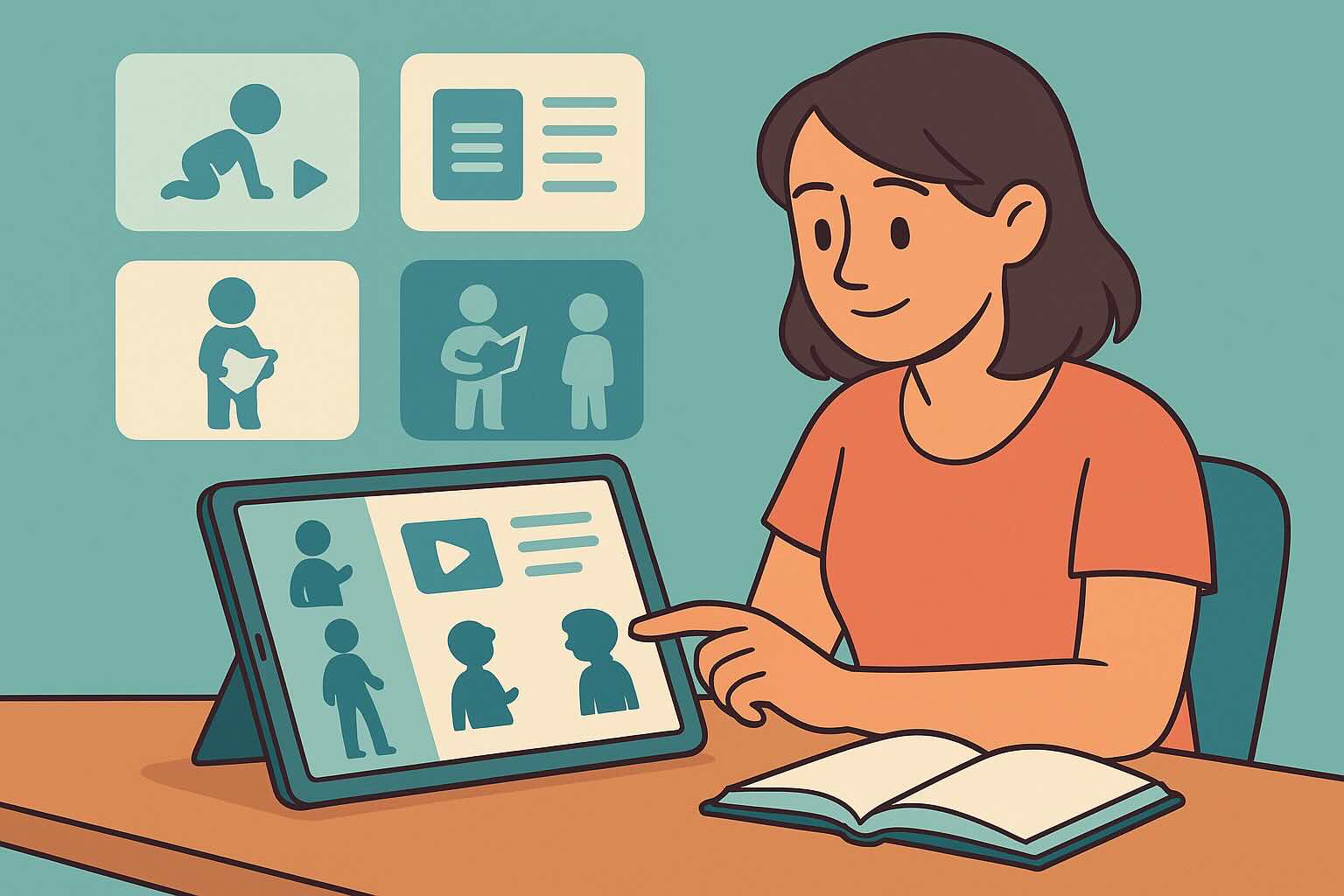
Connection Before Correction Toolkit
Daily practices and scripts to build strong parent-child relationships that make behavior guidance more effective.
Frequently Asked Questions
Need personalized support?
RootWise's AI coach can provide tailored strategies for your specific situation, available 24/7 when you need it most.
Learn More About AI Coaching →